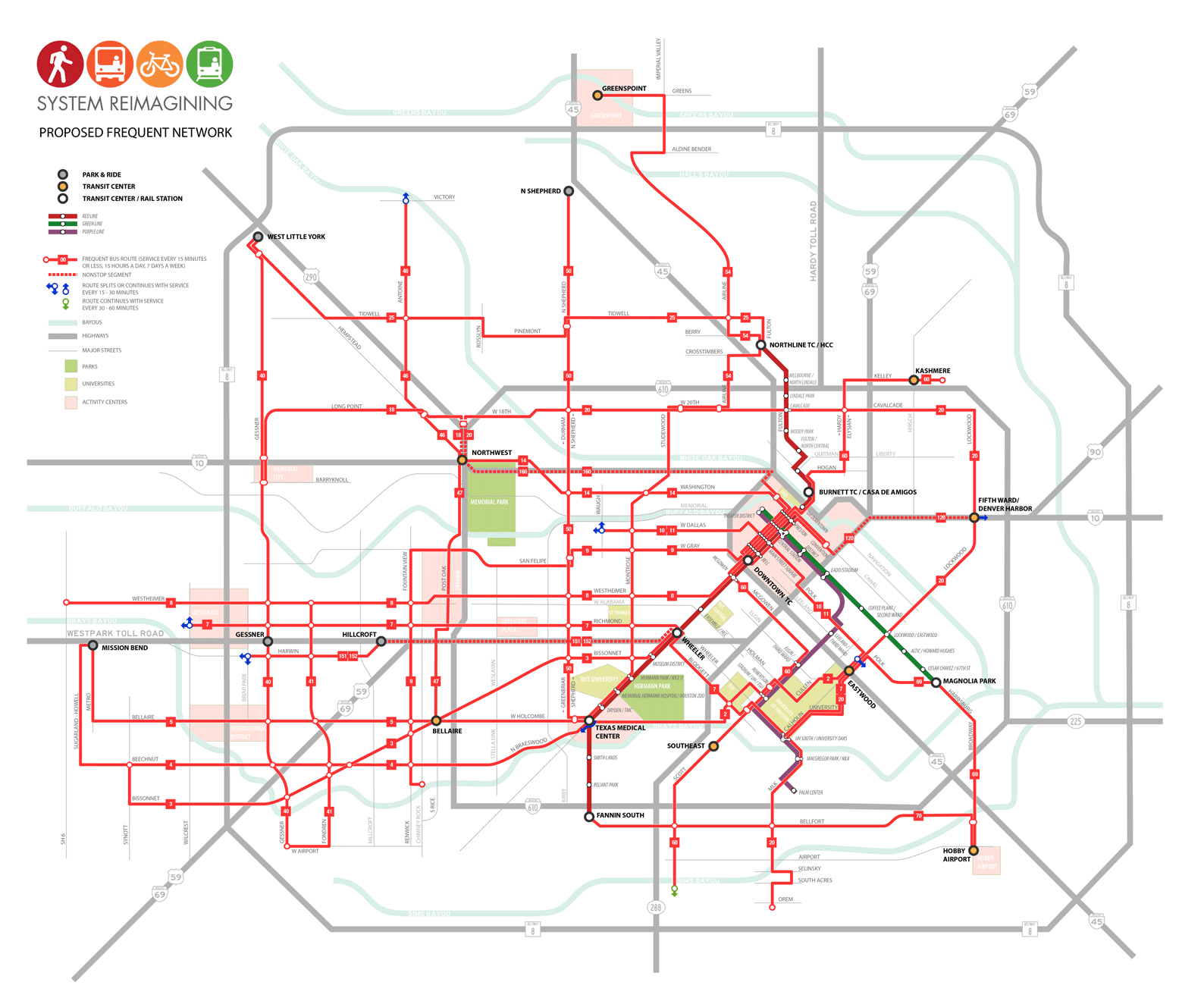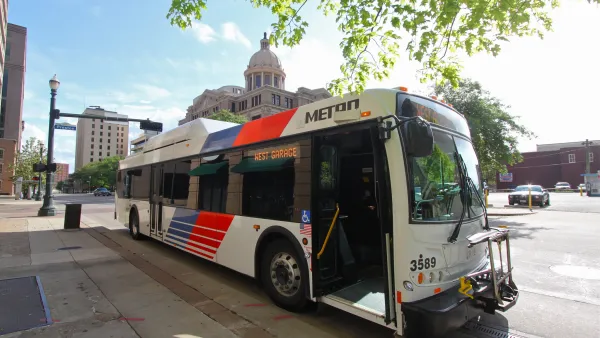Houston has proposed a large-scale overhaul of the Metro bus system. Based primarily on a high-frequency grid, the proposed plan would make sweeping changes to routes, nomenclature, and more. The plan will be a "must watch" for planners.
"Metro on Thursday released a draft of its 'reimagining' plan, intended as a broad upgrade to the region's bus system," reports Dug Begley. "Some officials said the plan could help increase ridership by 20 percent or more after two years."
"Metro buses, operating on a system largely developed in the 1980s, are essentially delivering the best service for the Houston of 1990," writes Begley in presenting the case for the upgrade. Specifically, "[the] system is based largely on an assumption that most people are trying to get downtown, although major employment centers have emerged elsewhere."
Begley's article quotes Jarrett Walker, who guided the redesign, in describing the obsolescence of the system: "Frankly, Houston is unique for how obsolete the system has gotten," says Walker.
Walker provides his own coverage of the proposal at his Human Transit blog, where he focuses especially on how much frequent network service will be gained by the overhaul—all without increasing operating costs. "The core idea of the new network is the high-frequency grid, designed to enable anywhere to anywhere travel with a single fast connection. Everywhere on the proposed network of red lines, that kind of easy access will be possible," explains Walker.
Eric Jaffe also examines the proposal, focusing on the frequent network but also some of the other improvements proposed by the plan: "The proposed system uses straighter routes and ties names to streets, which makes it more intuitive to navigate. It's an all-day system, which means riders get the same type of service on nights and weekends that they get during rush hours. Most importantly, the system connects to job centers all around the city instead of primarily the the downtown core, which creates better access between home and work."
A vote is likely in August or September. As Begley mentions in his coverage of the proposal, Metro officials are anticipating opposition, given the sweeping nature of the proposed changes.

FULL STORY: Metro unveils major change to bus service, awaits public outcry

Analysis: Cybertruck Fatality Rate Far Exceeds That of Ford Pinto
The Tesla Cybertruck was recalled seven times last year.

National Parks Layoffs Will Cause Communities to Lose Billions
Thousands of essential park workers were laid off this week, just before the busy spring break season.

Retro-silient?: America’s First “Eco-burb,” The Woodlands Turns 50
A master-planned community north of Houston offers lessons on green infrastructure and resilient design, but falls short of its founder’s lofty affordability and walkability goals.

Test News Post 1
This is a summary

Analysis: Cybertruck Fatality Rate Far Exceeds That of Ford Pinto
The Tesla Cybertruck was recalled seven times last year.

Test News Headline 46
Test for the image on the front page.
Urban Design for Planners 1: Software Tools
This six-course series explores essential urban design concepts using open source software and equips planners with the tools they need to participate fully in the urban design process.
Planning for Universal Design
Learn the tools for implementing Universal Design in planning regulations.
EMC Planning Group, Inc.
Planetizen
Planetizen
Mpact (formerly Rail~Volution)
Great Falls Development Authority, Inc.
HUDs Office of Policy Development and Research
NYU Wagner Graduate School of Public Service


























